Thinking about moving your house? You’re not alone. With 12.6% of Americans relocating each year, moving houses is more common than you might think. However, relocating a house involves more than just lifting it off its foundation and transporting it to a new location. It requires careful planning, obtaining permits, coordinating utilities, and much more.
The good news is that, with the right guidance and preparation, you can navigate this complex process smoothly. Homeowners have moved their houses successfully for various reasons, from saving a historic home to finding safer ground.
In this guide, we’ll provide you with all the essential information you need. From surprising cost factors and smart planning tips to real-life examples and cost-saving secrets, we’ve got you covered.
By the end of this guide, you’ll have all the knowledge you need to confidently plan and execute a successful house move. Whether you’re looking to protect a piece of history, avoid environmental problems, or simply relocate for personal reasons, this guide will make the process smoother and less stressful. Let’s begin your journey to a successful house move.
Common Reasons for Deciding to Move a House
Exploring the reasons for moving a house can offer valuable insights into whether this option might be right for you. This section covers diverse motivations for house relocation, highlighting various factors that could influence your decision.
- Economic Factors: Sometimes, moving a house can be more cost-effective than building a new one, especially if the house has significant architectural value or sentimental worth. It allows homeowners to save money while preserving a piece of history.
- Land-Related Issues: Problems like soil instability, flood risks, or land development projects can make the original site unsuitable. Moving the house to a safer, more stable location can be a practical solution.
- Preservation of Architecture: For lovers of historic homes, the unique architecture and history are irreplaceable. Moving such a house to a new location can save and cherish a piece of history.
- Personal Preferences: Personal reasons can also drive the decision to move a house, such as wanting to keep the same home while relocating to a different area due to work commitments, lifestyle changes, or a preference for a different neighborhood or region.
- Addressing Property Line Disputes and Zoning Changes: Sometimes, moving a house is necessary to comply with legal requirements, resolve property line disputes, or accommodate changes in zoning laws.
- Making Better Use of Land: In some communities, moving a house is part of optimizing land use. For example, in Boise, Idaho, homes are often moved to divide a lot for additional buildings while preserving the original structure. Sometimes, houses are moved to one side of a large lot to allow for new developments while keeping the existing home intact.
- Environmental and Safety Concerns: Moving a house can help avoid environmental hazards such as flood zones, landslides, or other natural threats, ensuring a safer living environment.
- Community and Social Reasons: As communities grow and change, people might move houses to be closer to family, and friends, or better amenities such as schools, parks, and healthcare facilities.
Each of these reasons involves its own set of challenges and considerations; deciding to move house is highly personal and often complex. If you find yourself needing clarity on these challenges, Kristin Egmont can provide practical advice to help you proceed with your unique situation effectively.
Key Considerations Before Moving Your House
Before starting the process of moving a house, there are several important factors to think about for a successful transition:
Planning Your Route
The first thing to tackle is selecting the right route for the move. It’s important to choose a path that can accommodate the size of the house and the moving equipment. Be sure to check the road widths, bridge load limits, and the height of any overhead obstacles like power lines.
Coordinating Utilities
You’ll need to contact utility companies to disconnect services at your current location and reconnect them at the new site. This includes electricity, water, gas, and sewage.
Obtaining Necessary Permits
Acquiring the right permits can vary in complexity based on your location. Make sure you secure road use permits, building permits for the new site, and any special permissions needed for crossing certain areas.
Informing the Neighbors
It’s courteous and practical to let your neighbors know about the move. This is especially important if the move may affect traffic or access in the neighborhood.
Insurance Coverage
Ensuring you have adequate insurance for the move is crucial. This will protect you from any damages that might occur during the process, whether to your house or to other properties.
Evaluating Costs
Take the time to conduct a detailed analysis of the moving costs, including any potential hidden expenses. This will help you understand the full financial commitment involved.
Reviewing these key considerations will help streamline your house move. If you’re looking for detailed guidance or have questions about the process, Kristin Egmont is ready to offer expert assistance to ensure your move is seamless and successful.
Offering her services across the country, Kristin is experienced in facilitating the acquisition, marketing, and relocation of homes, with notable expertise in Fairfield CT homes for sale and as one of the leading Westport real estate brokers.
A Detailed Breakdown of How Much Does It Cost to Move?
Understanding the costs associated with moving a house is important for planning and budgeting. Here’s a comprehensive look at the various expenses involved:
Labor and Professional Movers Costs
- Hourly Rates for Local Moves: For local or intrastate moves (under 100 miles), expect to pay $80 to $100 per hour for labor.
- Additional Movers: Adding more movers can increase costs by $25 to $50 per hour each.
- Long-Distance Moves: Hiring professional movers for long-distance relocations can range from $800 to $2,500, with an average cost of around $1,400.
Moving Truck Rental Costs
- DIY Truck Rental: Renting a truck for a do-it-yourself move typically costs between $20 to $100 per day.
- Mileage and Additional Fees: Be sure to factor in mileage costs and any other associated fees.
- Cost-Saving Tip: Opt for a budget-friendly rental company to save money.
Storage Costs for Belongings
- Temporary Storage Fees: Storage costs can vary greatly depending on the size and duration of rental.
- Monthly Rates: Expect to pay between $90 and $300 per month, with an average cost of $190.
- Unit Sizes: Storage units come in various sizes, from 5×5 feet to 10×30 feet or larger.
Packing and Moving Supplies
- Essential Supplies: Necessary items include moving boxes, packing tape, box cutters, dollies, bubble wrap, furniture pads, and moving blankets.
- Full-Service Packing: Many moving companies offer full-service packing at an hourly rate, ideal for those with mobility issues or who prefer not to pack themselves.
- Convenience Factor: Full-service packing can save time and ensure your items are packed securely.
Cleaning Services and Tips for Professionals
- Professional Cleaning Rates: Expect to pay between $25 and $80 per hour for professional cleaning services.
- Move-In and Move-Out Cleaning: These services ensure both your old and new homes are clean and ready for occupancy.
- Tipping Movers: A suggested tip for movers is $72 to $144 for a three-person crew working for two hours.
Fragile Item Moving and Insurance
- Handling Fragile Items: Movers take extra care with delicate items like pianos and heirloom furniture, using blankets and pads for protection.
- Moving Insurance: Covers loss or damage to your belongings, as well as moving truck damage and liability.
- Peace of Mind: Investing in moving insurance is affordable and provides valuable protection.
New Foundation Costs for Your House
- Significant Expense: Building a new foundation is a major cost that varies widely based on materials, size, and complexity.
- Get Multiple Quotes: Obtain quotes from several contractors to ensure a realistic budget.
- Budgeting: It’s crucial to have a clear and realistic budget for foundation costs.
Permits for House Moving
- Legal Compliance: Obtaining the necessary permits is crucial to ensuring your move is legal.
- Varies by Location: Permit costs can vary depending on your location and specific move requirements.
- Check Local Requirements: Consult with local government offices to understand the permits you need and their costs.
Structural Modifications to Your House
- Types of Modifications: These can include reinforcing the house frame, removing or altering parts, or adjusting to fit the new foundation.
- Increased Costs: Structural modifications can significantly increase your moving costs.
- Professional Handling: Ensure experienced professionals handle these modifications to maintain safety and integrity.
Personal Vehicle Transport
- Shipping Costs: The average cost to ship a car is around $1,650.
- Driving Costs: If you choose to drive – budget for gas, lodging, and meals during the trip.
- Compare Options: Weigh the costs and benefits of shipping versus driving your vehicle to the new location.
Knowing these detailed costs helps you plan and budget effectively for your house move. Professional help can ensure every aspect is managed efficiently, preventing costly mistakes and ensuring a smooth process.
Cost Breakdown for Moving Houses of Different Sizes
Moving a house involves various costs, depending on its size and the distance of the move. Here’s a detailed look at the typical average cost of moving house you can expect:
- House Move (per square foot): The average cost to move a house based on its size and weight ranges from $12 to $16 per square foot, translating to a total of $18,000 to $40,000.
- Local House Move (Small to Moderate Size): For moving a small to moderately-sized house within a local area, the cost can range from $15,000 to $40,000.
- Long-Distance or Larger Homes: Moving costs for larger homes or long-distance moves can be significantly higher, sometimes up to $200,000.
- Standard 2-3 Bedroom House (5,000 lbs): For a standard 2-3 bedroom house weighing around 5,000 lbs, the moving cost is approximately $2,700, but can exceed $7,000 for long-distance relocations.
- Local Move: The average cost for local moves within a short distance is around $1,187, with costs ranging from $350 to $2,500.
- Long-Distance Move: For long-distance moves, costs can range from $1,000 to over $14,000.
- 3-Bedroom Move Costs: Moving a 3-bedroom house long distance typically costs around $5,000, but prices can vary from $2,300 to $9,600 based on distance, weight, and packing needs.
Each move is unique, and the cost of moving a house can vary widely. To get an accurate estimate of your specific needs, consider using a cost of moving a house calculator. Kristin Egmont can assist you with this, guiding you through the financial aspects of relocating and helping ensure that your move is both efficient and cost-effective.
Average Monthly Utility Costs for a New Home
Moving to a new home means you’ll need to consider the ongoing costs of utilities. These expenses can vary depending on where you live, how much you use, and the type of service. Here’s a look at the typical costs for various utilities:
- Electricity: Typically, you’ll pay about $123 each month for electricity, which adds up to around $1,475 a year.
- Gas: The average gas bill is roughly $80 per month, though this can fluctuate with usage and seasonal changes.
- Sewer: Sewer charges can vary widely, usually falling between $14.04 and $135.57 per month.
- Trash Removal: This service typically costs between $12 and $20 per month.
- Water: Monthly water bills generally range from $17.04 to $68.14.
- Internet: Expect to pay about $56.60 each month for internet service.
To cover these essential utilities, it’s a good idea to budget at least $200 per month. Keep in mind that your total costs may be higher or lower based on your specific usage and the location of your new home.
Understanding Moving Insurance Costs
Protecting your belongings during a move is important. Here’s a simple guide to the different types of moving insurance and their costs:
Third-Party Moving Insurance
- This insurance is based on the weight of your items.
- Companies usually charge about $1.25 per pound.
- For example, if your items weigh 1,000 pounds, the cost would be around $1,250.
Released Value Protection
- This basic coverage is often free for moving companies.
- It offers only limited protection for your items.
Full Value Protection
- This is a more complete coverage option.
- It typically costs 1% to 2% of the total value of your items.
- For instance, if your belongings are worth $50,000, the cost would be between $500 and $1,000.
Choosing the right moving insurance ensures your belongings are protected, giving you peace of mind during the move.
Getting or updating homeowners insurance is also important when moving to a new home. On average, homeowners insurance in Connecticut costs around $1,870 in 2025. However, this amount can vary widely based on factors like the location and size of the home, among other considerations.
How to Move a House?
Understanding the steps involved in moving a house can help you better estimate the costs and plan effectively. This section outlines the key stages in the house-moving process, providing a clear picture of what to expect.
- Initial Assessment: Evaluate the house to ensure it’s structurally sound for moving, especially important for historic or older homes.
- Planning and Coordination: A team of contractors, engineers, and architects plan the move, considering logistics like the house’s weight, route, and obstacles.
- Securing Permits: Obtain necessary permits from local authorities, especially for moves crossing city or state lines, as the average cost to move out of state is typically from $1,400 to more than $8,000, which underscores the importance of careful financial planning.
- House Preparation: Disconnect utilities, lift the house with hydraulic jacks, and place it on dollies or a moving truck. Preparation varies by house type (brick, mobile, or trailer).
- Transportation: Move the house slowly and carefully to its new location. Long-distance moves can take several days.
- Setting on New Foundation: Position the house onto its new foundation, whether a crawl space, concrete slab, or stone foundation.
- Reconnection and Final Touches: Reconnect utilities and make any necessary repairs or adjustments to ensure the house is livable.
Once all these steps are completed, following the guide on how to move a house, your house will be ready to become a home again in its new location, with every detail attended to for a smooth transition.
Factors That Affect Moving Costs
Several factors can influence the answer to the question, Can you move a house? Understanding these factors can help you budget more accurately and avoid unexpected expenses.
- Home Size: The cost of house movers increases with larger homes that contain more items. Local movers typically charge by the hour, whereas long-distance movers often calculate fees as a flat rate based on the weight of your belongings.
- Distance: Longer moves cost more due to additional expenses like gas, tolls, and travel costs for the moving crew.
- Hiring Movers vs. DIY: Renting a truck and doing the work yourself is cheaper. Renting a container is mid-priced. Hiring professional movers is the most expensive but convenient option. Get multiple quotes to avoid overpaying.
- Truck Size: Larger trucks cost more to rent. Small trucks are suitable for a one-bedroom apartment. Mid-size trucks are suitable for up to a three-bedroom house. Large trucks are suitable for three- to five-bedroom homes.
- Moving Supplies: Costs for boxes, packing tape, cushioning materials, markers, box cutters, and garbage bags.
- Time of Year: Moving in spring or summer is more expensive due to high demand. Moving in the off-season can save money but comes with potential weather challenges.
- Specialty Items: Moving large or delicate items like pianos, hot tubs, and artwork costs more. These items may need special equipment and care.
- Vehicles: Transporting cars or boats requires specialized trailers and adds to the cost.
Also Read: Timing is Everything: The Best Months to Sell Your House
Cost-Saving Tips for Moving Your House
Moving a house can be a complex and expensive endeavor, but with the right strategies, you can save money and reduce stress. Here are some practical tips to make your move more manageable and budget-friendly:
Declutter Before You Move
The less you have to move, the less it will cost. Go through your belongings and get rid of items you no longer need. This can significantly reduce your moving expenses.
Find Free or Cheap Packing Materials
Don’t spend a lot on boxes and packing supplies. Look for free boxes at grocery stores or through community groups like “Buy Nothing” groups. Save boxes from deliveries or mail to use for your move.
Move During the Off-Season
Try to plan your move between October and April. Moving during the off-season can save you money because demand for moving services is lower, which can result in lower prices.
Rent a Truck or Use a Moving Container
For short distances, renting a moving truck is often the most affordable option. If you’re moving long-distance, consider using a moving container service. This can save you money on labor costs since you pack and unpack the container yourself.
Implementing these tips can help reduce the cost of moving a house, making your relocation both more economical and less stressful. If you need additional assistance, reach out to Kristin Egmont. She can provide expert advice, assist with planning, and connect you with reliable moving services to ensure a smooth transition.
By taking these steps, you can ensure a successful and economical move, allowing you to focus on the excitement of settling into your new home.
She is a renowned real estate agent with extensive experience in the industry. She offers her services throughout the nation, including helping clients find houses for sale in Easton CT, and providing expertise in Trumbull CT real estate. She excels with the expertise to suggest buying, selling, and moving homes, making her a valuable resource for anyone looking to relocate.
Frequently Asked Questions (FAQ)
Q1. What are the average moving costs per square foot or per room in CT?
Ans. Average moving costs in Connecticut are typically estimated by the number of rooms or the time and labor required, rather than by square footage. For a local move, you can expect to pay between $486 for a studio and up to $4,407 for a five-bedroom home. For example, a two-bedroom local move costs around $1,085, while a three-bedroom move averages about $2,500. Long-distance moves within the state will have costs more aligned with interstate moves, based on weight and volume.
Q2. Are there additional CT-specific fees or permits required when moving household items?
Ans. There are no specific moving permits required for homeowners in Connecticut when moving household goods. However, any moving company operating within the state must have a Household Goods Carrier Certificate issued by the Connecticut Department of Transportation (CTDOT). Out-of-state movers are regulated by the U.S. Department of Transportation and must be registered with the Federal Motor Carrier Safety Administration.
Q3. Are there affordable moving services or nonprofit options available in Connecticut?
Ans. While there are no specific statewide nonprofit moving services in Connecticut, there are ways to find affordable options. National organizations and charities sometimes offer moving assistance for low-income individuals. Additionally, some moving companies offer more budget-friendly options, and services like TaskRabbit can be used for moving labor at a lower cost. It is also recommended to get quotes from multiple movers to find the most competitive price.
Q4. Do moving expenses in Connecticut vary significantly between urban and rural areas?
Ans. Yes, moving expenses in Connecticut can differ between urban and rural locations. Urban areas like Stamford, Hartford, or Bridgeport may have higher costs due to logistical challenges such as narrow streets, limited parking, and navigating apartment buildings with stairs or elevators, all of which can increase labor time and complexity. These access challenges can result in additional fees from moving companies.
Q5. How can contractors estimate the cost to move a house within CT, interstate vs. local?
Ans. Contractors estimate the cost of moving an entire house structure based on several factors, with the total cost typically ranging from $15,000 to $200,000. The primary factors include the house’s size, weight, and structural integrity, as well as the distance of the move. Costs are often broken down to between $12 and $16 per square foot for the structural move alone, with additional expenses for things like a new foundation, utility hookups, and permits.
Q6. What hidden costs (like insurance or packing) should CT residents include in their moving budget?
Ans. Connecticut residents should budget for several potential hidden costs when moving. These can include expenses for packing supplies, which are often underestimated, and fees for handling specialty items like pianos or artwork. Additional insurance to cover the full value of your belongings is another common extra cost, as basic liability coverage is often limited to a per-pound amount. Other potential hidden fees include charges for long carries, stairs, or elevator usage, as well as fuel surcharges and last-minute rental fees.




